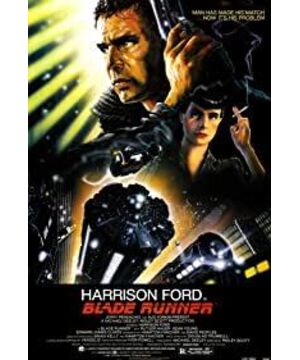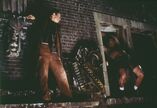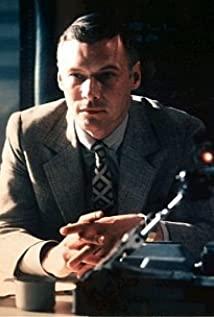[Realistic Implications and Discussion on Human Nature]
The biggest contradiction in "Blade Runner" is undoubtedly the opposition between clones and natural humans. We used to think that the difference between humans and non-humans is very simple, and true human nature is well defined. But with the development of technology, this boundary is slowly blurring. The difference between the appearance of robots and humans in early films was easily recognizable, and the advent of clones made this distinction disappear, but the original clones were still detectable by tools because they lacked basic human emotions. Human nature seems to have become the last excuse for humans to claim that they are equal to all other creatures. In "Blade Runner", this last advantage has also been subverted, and this subversion also gives the film more realism. If clones can also be transplanted with memory to make up for the lack of humanity, then what is the difference between clones and natural people. And the humanity that humans think they have is disappearing under the decadence of the post-industrial age and the degeneration of humanity caused by human greed. But this reflection is explored by contrast in several places throughout the film:
When Racheal first came to Deckard's house to find out if he was a clone, Deckard told her the truth in a playful tone, here Deckard, a self-righteous man, ignored the most basic sympathy for Racheal. In contrast, Racheal's tears seem to make people feel that she is a human with richer emotions.
In the part of JF Sebastian, the lonely JF did not have any friends, lived alone in an almost empty building, and got rid of loneliness through the dolls he made. The arrival of the cloned Roy and Pris seems to be a stark contrast. On the surface, the lower-level clones have more real humanity, they will grieve over the death of leon, and they will love each other, while the real natural people gradually materialize in loneliness, gradually become a screw in the factory, and slowly lose this self. emotion.
In the last scene of Roy chasing Deckard, Deckard, who was in charge of chasing and killing clones in front of the film, became the target of being chased and killed by clone Roy, which also constitutes an irony here. Of course, the climax of the film is Roy's forgiveness for Deckard and finally saving Deckard before his life is about to end. The human brilliance of clones has reached its peak here. In contrast, Deckard, who hunted clones everywhere because of the persecution of the police station, seems to have lost the freedom of human nature, and finally slowly materialized into the police station. a chess piece.
The discussion of human nature in "Blade Runner" is inconclusive. The film's narrative has been wandering between vague values. The director seems to prefer to use a non-contradictory method to explain it, so as to provide a larger interpretation space for future generations. The addition of a unicorn scene to the 1992 Director's Cut to suggest that Deckard's clone status may have served that purpose was used in many of the best sci-fi noir films in the decades that followed, such as Ghost in the Shell", "The Matrix", etc.
[Apocalyptic scene in the post-industrial era]
"Blade Runner" portrays the apocalyptic scene in the post-industrial era very vividly, and people's imagination of the future has always been beautiful. Advanced technology brings a better environment and a better quality of life, the development of science and technology eases the contradictions between human classes, and war and poverty no longer happen. "Blade Runner" once again subverts human's vision of a better future. If our future is not a clean and beautiful city, but a day-to-day dark cloud, the air is seriously polluted, and the streets are full of garbage, what a shock. The description of the future world in the film brings another reflection on the development of science and technology. The nuclear war has destroyed the environment of the earth, and human beings have to migrate to other planets. Huge advertisements about the off word plan often appear in the film. And many people who cannot immigrate are abandoned on the existing earth, enduring the decline of cities and the desolation of life.
There is almost no sunlight in the whole film, and the dark tones of the whole film also match the theme of black science fiction. In line with the dim world view, people's loneliness and alienation, and the communication between people is reduced. There is hardly a single family scene in the film, not even a couple. Everyone is just an isolated existence, living in a lonely barren. In the film, JF is a portrayal of human loneliness, eliminating loneliness by making dolls. The degeneration of human nature and the objectification of people brought about by loneliness are things that make people feel even more frightened.
In many subsequent movies, the apocalyptic plot has become an increasingly popular technique, whether in sci-fi movies such as "The Matrix" and "The Dark Knight", or in other movies such as "I Am Legend" and "Robot Story" All have descriptions of end-time scenarios.
[Electronic music and sci-fi movies]
Finally, let's talk about the electronic music in the movie. The electronic music in the ending subtitle of "Blade Runner" is very impressive. Although this is the only part of the movie that uses electronic music, I think electronic music is quite suitable for the performance of black themes. Electronic music can express the sense of confusion, a reflection on technology, and the rhythm of electronic music can well emphasize the heavy theme of the film.
View more about Blade Runner reviews











